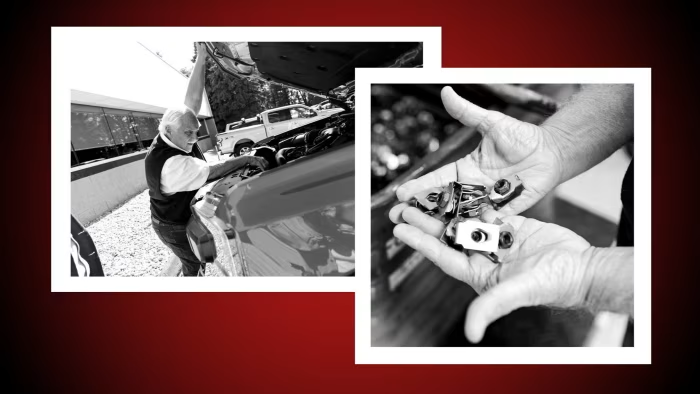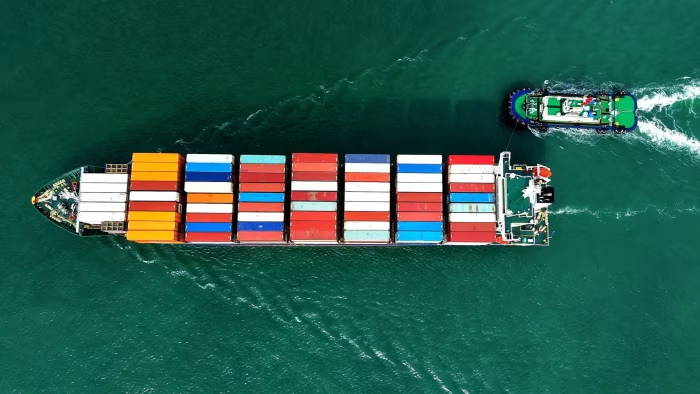Last March, Team 1 Plastics, a Michigan car parts supplier, ordered a $300,000 injection moulding machine from Japan. By the time it arrived, US President Donald Trump’s tariffs had pushed the price up 15 per cent to $345,000.
“That’s real money where I come from,” said Gary Grigowski, Team 1 Plastic’s vice-president and co-founder. “It’s a cost that has to be recovered somehow.”
Trump’s tariffs were supposed to boost the US car industry. They would shield it from foreign competition, correct trade imbalances and promote the reshoring of jobs outsourced to Asia, according to the White House.
Instead they have thrown the sector into turmoil. Ford, General Motors and Stellantis — the Big Three — are forecasting a combined $7bn tariff-related hit to their earnings in 2025, while the thousands of companies that supply them are reeling from disrupted supply chains, reduced cash flow and higher product prices.
The negative consequences are palpable throughout the state of Michigan, home to more than 1,000 car parts suppliers making everything from powertrains and steering columns to windshield wipers and door handles.
“There’s definitely distress,” said Patrick Anderson, head of Anderson Economic Group, a Michigan-based consulting firm. “And the full effect of tariffs hasn’t even hit yet.”
Michigan’s industrial capital is Detroit, the historic birthplace of the US car sector. Ever since Henry Ford built the world’s first moving assembly line there in 1913, it has been an emblem of the US’s technological and manufacturing prowess.
But that prowess is based on supply chains that are complex and global — and will be hard to replace.
“As much as we want to build walls around ourselves here and live in this protected box, it’s impossible,” said Mary Buchzeiger, chief executive of Lucerne International, which forges and casts vehicle components 30 miles outside Detroit.
“We just don’t have the manufacturing footprint any more . . . to produce everything we need to consume here in the US.”
Suppliers have watched with concern as the Big Three reel from the upheaval caused by tariffs, particularly the 25 per cent levy on imported car parts. “This is a $2bn headwind that really restricts our future investment,” Ford chief executive Jim Farley said last month.
“The automotives are bleeding, and the question is, if they don’t survive, what does it look like for the rest of us?” said Lisa Lunsford, chief executive of GS3, which makes aluminium and steel alloy parts.

One victim of the tariff regime is AlphaUSA, a Detroit-based group that makes precision metal components. Chuck Dardas, president, said the company is incurring additional costs of $250,000 a month because of the 50 per cent tariff it pays on steel nuts it imports from Taiwan — a lot for a company with annual sales of $65mn.
“This is existential for a company our size,” Dardas said.
Already, some players have gone to the wall. In June, Japan’s Marelli, a big supplier to Stellantis and Nissan, filed for bankruptcy protection in Delaware. Its chief executive said it had been “severely affected” by US tariffs.
Gretchen Whitmer, Michigan’s Democratic governor, has at times sounded sympathetic to Trump’s approach to trade, bemoaning “decades of offshoring and outsourcing” that “shipped hundreds of thousands of good-paying, middle-class jobs overseas”.
But she has also lamented the tariff-related uncertainty that has prompted some companies to scale back or consider moving production overseas. “Dangerously ironic, the national tariff chaos does the opposite of the administration’s goal — companies are cutting, not creating jobs in Michigan,” she said.
Glenn Stevens, executive director of MichAuto, a lobby group, said the industry’s situation is “unprecedented”. “We’ve been through a lot of inflection points, but I don’t think I’ve ever seen anything like the dynamics at play here,” he said.
Tariffs are just the latest setback for a sector bedevilled by disruption. First came a pandemic that jolted global supply chains. Then, a slump in demand for electric vehicles threw carmakers’ expansion plans into disarray. Now, they face a growing threat from Chinese rivals challenging their global dominance in traditional markets.
“Our industry is already a mess, and [the tariffs] are a mess on top of a mess,” said Buchzeiger. She said Lucerne International is paying a 72.5 per cent tariff on the goods it produces in China and imports to the US.
Suppliers say the worst aspect of the new policy is its haphazard nature. Pat D’Eramo, chief executive of Martinrea International, a Canadian parts supplier with engineering facilities in Michigan, cited the US government’s shock decision in August to expand the steel and aluminium derivative products subject to import levies
“That drove some commodity prices up as much as 400 per cent,” said D’Eramo.
The tariffs have created anomalies that, to many, seem illogical. D’Eramo said Martinrea pours stainless steel in Indiana which it sends to Canada to be made into tubes. “When it comes back we have to pay a tariff on both the stainless steel — that was American-made — as well as the tube,” he said. “There’s some slop in the system.”
Suppliers are in the painful position of having to pay the tariff upfront and then wait to be reimbursed by their customers — a process that cuts into cash flow and vastly increases their working capital costs.
AlphaUSA’s Dardas is negotiating with his customers to receive compensation, but some carmakers are refusing to pay all the tariff-related costs incurred by their suppliers. “I won’t be having this conversation with you this time next year if we don’t get recovery,” he said.

Some big car companies have demanded suppliers source more of their raw materials and parts in the US, but that can be hard to do.
Dardas said he approached several US manufacturers of nuts but “99.9 per cent of the time” the price they quoted was higher than the cost of the Taiwanese product, even including the tariff.
Grigowski said Team 1 Plastics had the same problem: there was no alternative to the $345,000 Japanese machine he bought earlier this year. “Seventy per cent of injection moulding machines are imported,” he said.
The smaller the company, the greater the disruption can be. Carrin Harris, head of Blitz Proto, a three-person prototyping firm in Farmington Hills, Michigan, said the price of the stainless steel components it uses rose 21 per cent between April and September. Other parts are now 50 per cent more expensive than before the tariffs.
That has wreaked havoc on the company’s price estimates. In the past, any quote it made for a job was valid for 30 days, she said. Now, it expires after a week. “Costs were changing on a day-to-day basis due to fluctuations in tariffs,” she said. “[So] there’s no way we can accurately determine what the cost is going to be anymore.”
While the levies have not fed into car prices, analysts say it is only a matter of time — especially once dealers exhaust pre-tariff inventories.
Gabriel Ehrlich, an economic forecaster at the University of Michigan, predicts the price of domestic and imported vehicles will increase 9.6 per cent on average over the several years it takes supply chains to adapt to Trump’s tariffs.
“Using 2024 prices this would raise the average cost of a vehicle by roughly $4,500 if profit margins stay the same,” he wrote in September.
Ehrlich said he also expects tariffs to trigger a decline in domestic car production, with the output of light vehicles falling by 313,000 units, or 3.1 per cent, annually. Light vehicle sales will fall by nearly 780,000 units a year and exports by 320,000 units, he predicted.
The levy on imported steel and aluminium is a key driver of the cost increases that have hit the industry, he added.
“Overall there’s a net cost to the state of Michigan, because those are major inputs into cars and light trucks,” Ehrlich said.
Meanwhile, car parts suppliers yearn for more stable times. “When are we going to get a break?” said D’Eramo of Martinrea. “Because it’s been five years of battle after battle and our margins have shrunk throughout all of this.”













